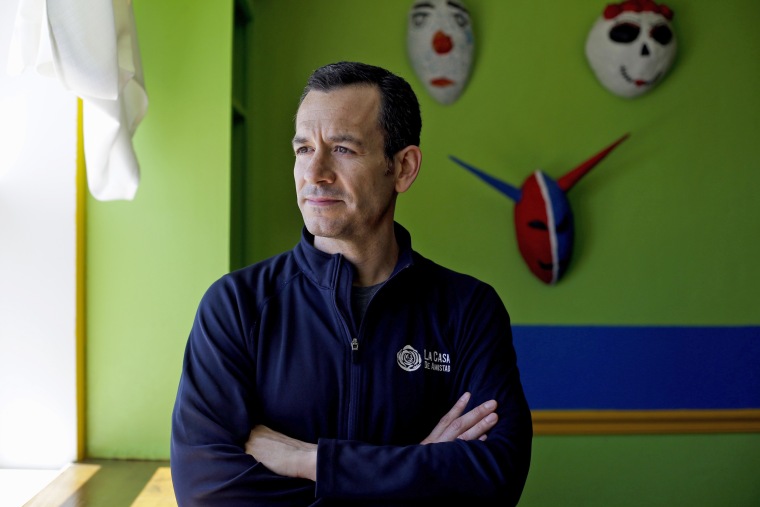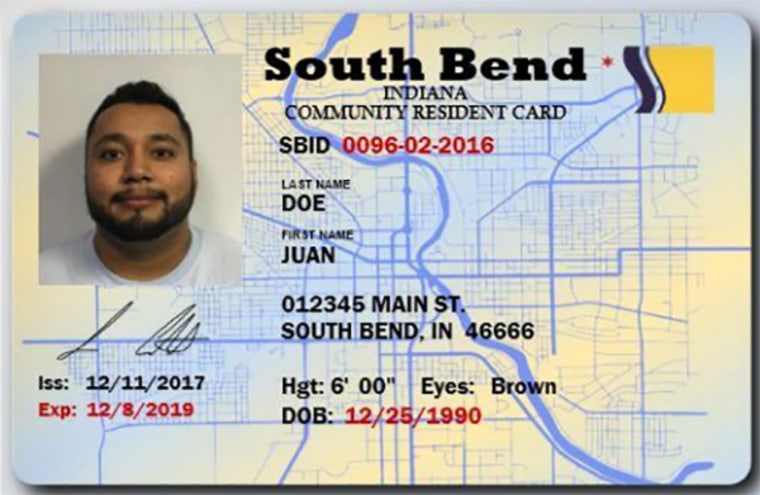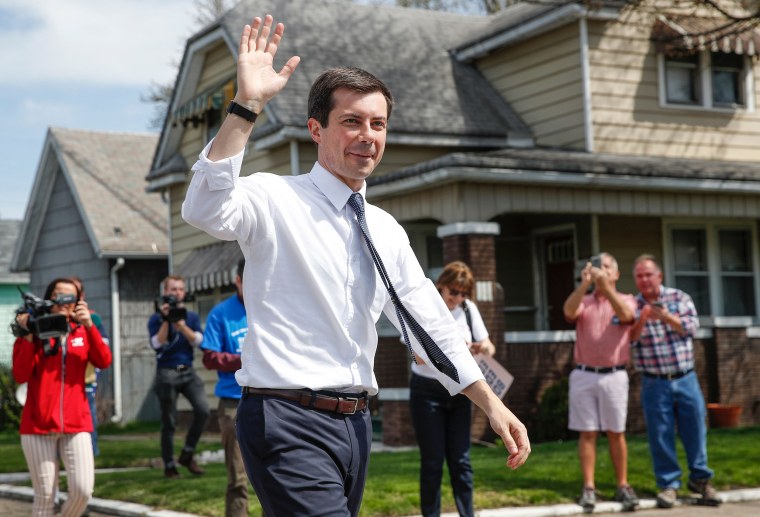SOUTH BEND, Ind. — It was 2016 and South Bend Mayor Pete Buttigieg had a problem.
Wanting to coax the small city's approximately 4,500 undocumented immigrants out of the shadows to help them access services, Buttigieg toyed with the idea of some type of municipal identification card for those who couldn't obtain driver's licenses or other government ID's.
The result was an innovative, first-of-its-kind governmentally endorsed, privately run program — one Buttigieg could tout on the presidential primary campaign trail where Latinos are a key voting group. But he never does.
Working closely with La Casa de Amistad, South Bend's main Latino outreach center, Buttigieg and the nonprofit's executive director, Sam Centellas, imagined a "Community Resident Card" program in which the IDs would be paid for, created and distributed by the group — a private organization — not the city.
Download the NBC News app for breaking news and politics
Buttigieg's part to make it all work was to sign an executive order requiring local services and institutions — like law enforcement, schools, the water utility and libraries — to accept the card as a valid form of identification. The city also enlisted local businesses, such as financial institutions and drugstores, so cardholders could open bank accounts and pick up prescriptions.
As a result, undocumented immigrants in South Bend are now able to partake in many routine aspects of daily life. And they can do so without fear that their names or immigration status might end up in the hands of authorities or anti-immigrant groups. That's because La Casa, as a private organization, isn't bound by requests for public records the way the city might be if it were running the program.
Centellas said his group doesn't even keep a list of people with cards, which each cost $25 for those who can afford to pay.

"It's a great way to provide benefits to people without the strings and risks attached to a traditional municipal ID card," Centellas said.
More than two years later, 2,153 cards have been distributed (about half of the estimated undocumented population) in South Bend (pop. 100,000), with another 1,035 in use in nearby Goshen, which put in place an identical program, also run by La Casa.
Similar programs have been rolled out in Trenton, New Jersey, and Northfield, Minnesota, proposed in Indianapolis and discussed in Austin, Texas.

But despite having developed a novel approach to benefit a community in need, Buttigieg doesn't mention it at campaign events as part of his South Bend record of accomplishments. And the program isn't promoted on his campaign website, nor given a word in his memoir, "Shortest Way Home: One Mayor's Challenge and Model for America's Future."
Why?
"Well, it's certainly something we're proud of. I could probably talk about it more,” Buttigieg told NBC News. "It's probably an undervalued approach. And one more example where you have a national challenge, where, if the city steps up, you can really make an impact."

